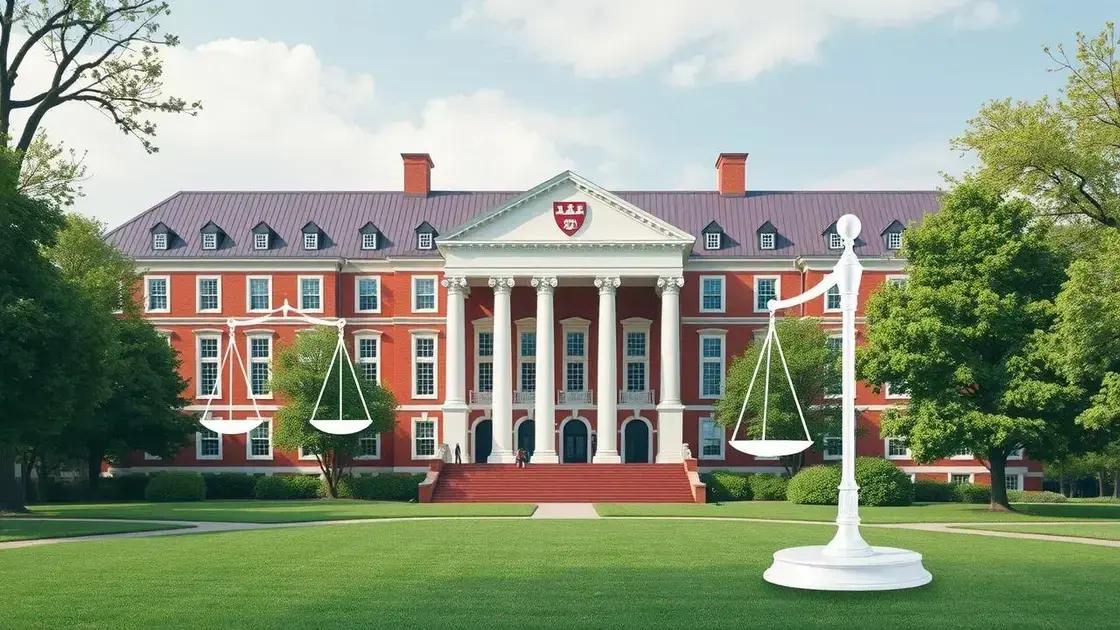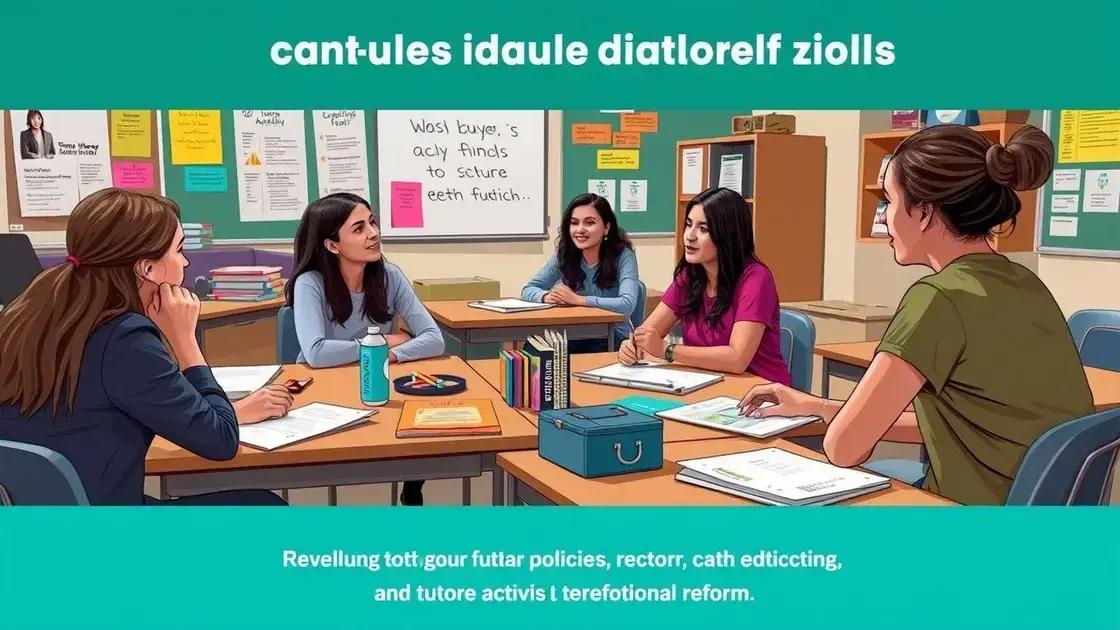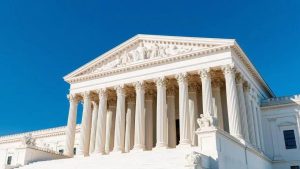Harvard sues Trump administration over key issues

Anúncios
Harvard sues the Trump administration to challenge policies affecting education access and student rights, potentially leading to significant changes in federal education policies and protections for students nationwide.
Harvard sues Trump administration in a bold move that could reshape educational policies. What does this mean for students and institutions? Let’s dive into the heart of the matter.
Background of the lawsuit
The background of the lawsuit against the Trump administration by Harvard University is a critical topic in today’s legal and educational landscape. Understanding the roots of this legal battle requires an examination of the policies that prompted Harvard to take this bold step.
Anúncios
Origins of the Conflict
The conflict began when several policies introduced by the Trump administration significantly affected higher education and civil rights. These policies raised concerns among many institutions, particularly about racial and economic equity.
Key Policies in Question
Harvard has specifically challenged policies aimed at international students, immigration regulations, and financial aid restrictions. These changes impact students across various demographics.
- Immigration restrictions that affect international students.
- Changes in financial aid that could limit resources for students.
- Policy shifts regarding affirmative action.
- Potential discrimination against specific student populations.
These actions have not only raised legal concerns but also sparked a nationwide debate on the future of education in America. As Harvard moves through the legal process, the implications may extend well beyond its campus.
Anúncios
The Legal Framework
The lawsuit is anchored in various legal precedents pertaining to educational rights and discrimination. Harvard’s legal team aims to assert that the administration’s policies are not only harmful but also violate existing regulations.
Furthermore, the resolution of this case could lead to important precedents for future legal disputes in higher education. The outcome may define how institutions across the country address similar challenges and advocate for the rights of their students.
Broader Implications
As the case unfolds, its impact on public opinion and policy will be significant. Stakeholders are closely watching how the arguments are presented and what solutions may emerge from this conflict. The outcome could either challenge or reinforce future federal education policies.
Key issues at stake

The key issues at stake in Harvard’s lawsuit against the Trump administration revolve around significant policy changes that affect education and civil rights. Each of these issues carries potential consequences for students and institutions nationwide.
Policy Changes Impacting Education
One major point of contention is the revised immigration policies that target international students. These changes create uncertainty for students seeking to study in the United States. The Trump administration’s restrictions can limit the opportunities available to these students.
Financial Aid Restrictions
Another critical issue is the restrictions on financial aid. These limits particularly affect low-income students who rely on this assistance to attend college. When aid is reduced, it creates barriers to access for those who might otherwise have qualified for support.
- Reduction in funding for financial aid programs.
- Increased application requirements that may disqualify some applicants.
- Potential loss of grants that help cover tuition costs.
In addition to these educational challenges, Harvard’s lawsuit addresses concerns about affirmative action policies. The Trump administration’s attempts to alter these policies raise questions about equity in college admissions.
Impact on Diversity and Inclusion
Changes in admissions policies could lead to a decrease in diversity on campuses. This reduction can have long-lasting effects on the representation of different groups within higher education.
Each of these issues presents a complicated landscape for universities. As the lawsuit develops, it signifies a larger struggle over the future of education rights, access, and equality for all students across the nation.
Responses from the Trump administration
The responses from the Trump administration to Harvard University’s lawsuit offer insight into how the government views the legal challenges posed by educational institutions. The administration has been vocal in its stance against many aspects of the lawsuit.
Government Stance on Education Policies
In public statements, officials have defended the policies that are being challenged, asserting that they are designed to streamline immigration and protect American jobs. They argue that these measures are necessary for national security and economic stability.
Legal Counterarguments
When responding to the lawsuit, the administration has filed counterarguments aimed at dismissing Harvard’s claims. Their legal team argues that the policies in place do not discriminate and are within the rights of executive power.
- Claim of legality in existing policies.
- Assertion of security as a primary concern.
- Defense of economic impact on American citizens.
This approach conveys the administration’s commitment to its policy agenda, even in the face of legal challenges. Moreover, the administration has expressed concerns that the lawsuit may have broader implications for how education policies are enforced across the country.
Public Statements and Media Reactions
Officials have utilized media platforms to communicate their perspective, often emphasizing their view that Harvard’s actions are based on political motives rather than the well-being of students. This narrative aims to rally public support for the administration while portraying the lawsuit as an elitist challenge to necessary reforms.
The interaction between Harvard’s lawsuit and the Trump administration’s responses highlights the clash between educational institutions and government policies. It emphasizes the ongoing debate about the future direction of education in America and the importance of safeguarding student rights amid changing political landscapes.
Public reaction and support

The public reaction and support surrounding Harvard University’s lawsuit against the Trump administration has been varied and intense. As details of the case emerge, many individuals and groups have expressed their opinions and concerns about the implications for education and civil rights.
Support from Educational Institutions
Many colleges and universities have rallied behind Harvard. They view the lawsuit as a pivotal moment for higher education. Supporters believe it challenges policies that could limit diversity and access in education.
Public Sentiment
Public opinion is divided, with some individuals strongly backing Harvard’s stance. They argue that these policies are detrimental to the rights of students, particularly those from marginalized backgrounds. Conversely, others believe that the changes are necessary for national security and economic reasons.
- Supporters view the lawsuit as essential for protecting student rights.
- Critics believe it undermines efforts for national safety.
- Voices from students highlight the importance of maintaining inclusive education.
Social media channels have become platforms for debate. Hashtags related to the lawsuit have gained traction, sparking discussions among various communities. These platforms enable voices from different backgrounds to express their support or opposition.
Grassroots Movements
Grassroots movements have also emerged in response to the policies challenged in the lawsuit. Activists are mobilizing to advocate for changes that promote inclusivity in education. Events and rallies are being organized to raise awareness about the potential impacts of the lawsuit and the policies at stake.
This dynamic landscape of public reaction illustrates the broader conversations about equity, access, and the future of education in America. How each group navigates these discussions will be vital in shaping the outcomes of the lawsuit and future policies alike.
Impact on higher education
The impact on higher education from Harvard University’s lawsuit against the Trump administration could be substantial, affecting not just Harvard but institutions across the nation. This legal battle addresses critical issues that could reshape the landscape of education.
Potential Changes in Policies
If Harvard wins the lawsuit, it may lead to significant changes in federal policies related to education. Such outcomes could ensure that students from diverse backgrounds continue to have access to higher education without fear of discrimination.
Effects on Student Enrollment
One immediate effect could be on student enrollment numbers, particularly among international and minority students. These groups may feel more secure if legal protections are strengthened. Alternatively, if policies remain hostile, these students might choose to study elsewhere.
- Increased diversity on campuses if protections are upheld.
- Higher enrollment rates among international students.
- Shift in institutional policies to promote equality.
The lawsuit also puts a spotlight on how educational institutions handle federal policies. Colleges may reconsider how they shape their admissions processes and financial aid systems in response to this evolving legal environment.
Long-term Implications for Accreditation
Moreover, the lawsuit could influence accreditation processes and standards. Higher education institutions may need to demonstrate compliance with the values of equity and inclusion, which could affect their standing and ability to receive federal funding.
Overall, the outcome of this lawsuit emphasizes the importance of fostering an inclusive environment in higher education. By maintaining equitable access, institutions can better prepare students for a diverse and interconnected world.
Future implications and next steps

The future implications and next steps regarding Harvard’s lawsuit against the Trump administration hold significant importance for higher education. As the legal proceedings unfold, various outcomes could shape the educational landscape in the United States.
Possible Legal Outcomes
If Harvard succeeds in its lawsuit, it may lead to more protective policies for students across all institutions. This victory could encourage other universities to challenge harmful regulations, fostering a wave of legal actions aimed at ensuring equitable education.
Policy Changes on the Horizon
On the other hand, if the administration prevails, the current policies may be upheld. This result may discourage challenges to similar policies and create a chilling effect on institutions that wish to advocate for student rights.
- Increased advocacy for student rights if Harvard wins.
- Stricter immigration policies could persist if the administration wins.
- Potential for broader coalitions among educational institutions.
The lawsuit has already raised awareness about the issues at stake in education. As more schools become involved in discussions about equity and access, the focus on these topics is likely to grow.
Engagement and Activism
Looking ahead, student activism may also rise in response to the outcomes. Students and advocates may mobilize to demand immediate changes to educational policies and practices. Campus organizations might organize events and actions to promote inclusivity and equality in education.
As the legal case proceeds, the discussions surrounding it will likely influence future legislation regarding education. Policymakers may feel pressure to address the concerns raised by the lawsuit, and this could lead to new laws supporting equitable access to education.
FAQ – Frequently Asked Questions about Harvard’s Lawsuit Against the Trump Administration
What are the main issues addressed in Harvard’s lawsuit?
Harvard’s lawsuit primarily challenges immigration restrictions, financial aid policies, and affirmative action changes that affect student access and rights.
How might this lawsuit impact students at other universities?
If successful, the lawsuit could set a precedent that strengthens protections for students across all higher education institutions, promoting equity and inclusivity.
What role does public support play in this legal battle?
Public support is crucial as it raises awareness and could influence policymakers, potentially leading to changes in federal education policies.
What are the potential future implications of this lawsuit?
The lawsuit may lead to significant changes in educational policies, increased advocacy for student rights, and a greater focus on diversity and inclusion in higher education.







